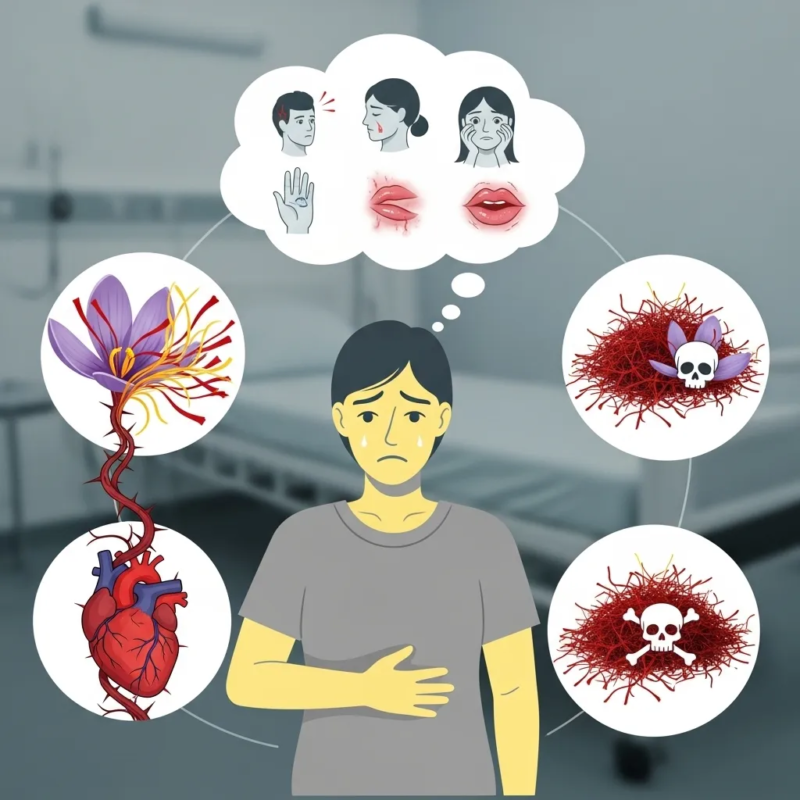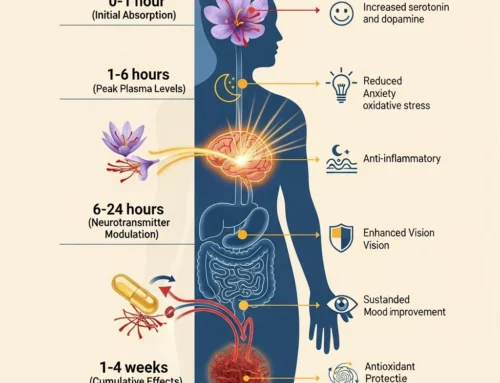Negative Side Effects of Saffron: What You Need to Know
Saffron is renowned for its rich flavor and health benefits, but like any substance, it can cause negative side effects in certain individuals. While most people can enjoy saffron in moderation without issue, some may experience adverse reactions. It’s important to be aware of these potential side effects to ensure safe consumption.
Negative Side Effects of Saffron During Pregnancy
Pregnant women should be particularly cautious when consuming saffron. One of the negative side effects of saffron is its ability to stimulate uterine contractions, which could lead to premature labor or even miscarriage if consumed in high quantities. Therefore, pregnant women should consult with their healthcare providers before incorporating saffron into their diet, especially in medicinal doses.
Blood Disorders and Negative Side Effects of Saffron
For individuals with blood disorders, saffron may not be the safest option. Saffron has natural anticoagulant properties, meaning it can thin the blood. While this might be beneficial in some cases, it can also increase the risk of bleeding, especially for those who are on blood-thinning medications or have conditions like hemophilia. These are among the negative side effects of saffron that should be considered carefully.
Allergic Reactions: A Negative Side Effect of Saffron
Some people may experience allergic reactions when consuming saffron. These reactions can range from mild symptoms like skin rashes and itching to more serious gastrointestinal issues. If you experience any signs of an allergic reaction, it’s important to stop using saffron immediately and consult a healthcare professional. Allergic reactions are one of the negative side effects that are not commonly discussed but can be serious in some cases.
Low Blood Pressure and Negative Side Effects of Saffron
Another potential negative side effect of saffron is its ability to lower blood pressure. While this can be beneficial for individuals with high blood pressure, it can cause dizziness or fainting in those with already low blood pressure. For people with hypotension or those taking medication to manage their blood pressure, it is advisable to limit saffron intake to prevent these negative effects.
Excessive Consumption and the Negative Side Effects of Saffron
While saffron is generally safe in moderate culinary amounts, excessive consumption can lead to more serious negative side effects. High doses of saffron, especially in supplement form, can cause symptoms like nausea, dizziness, and even toxicity in extreme cases. It’s essential to stick to recommended doses and not exceed them to avoid these adverse effects.
Consulting a Healthcare Provider About the Negative Side Effects of Saffron
If you’re uncertain whether saffron is safe for you, it’s best to consult with a healthcare provider. They can assess your personal health situation and provide advice on whether saffron consumption is appropriate for you, considering any potential negative side effects.
For more information about high-quality saffron, feel free to visit our selection of all-red saffron.
We hope this guide helps you make informed decisions about incorporating saffron into your diet. Always prioritize safety and moderation when using any spice, and remember that each person’s health needs are unique.








Get Social